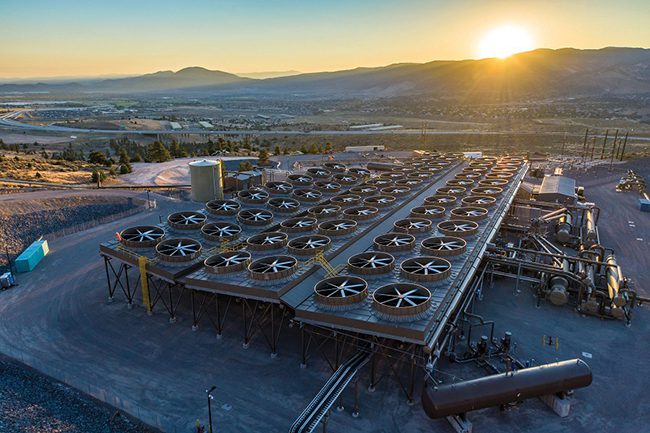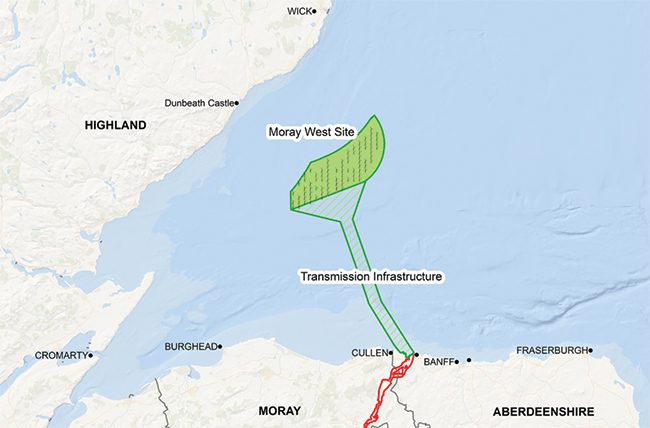Global Market for PPAs Supports Renewable Energy Projects
Credit to Author: Darrell Proctor| Date: Tue, 03 Jan 2023 05:12:59 +0000

Large global corporate groups continue to buy stakes in major renewable energy projects and sign power purchase agreements (PPAs) designed to provide long-term electricity for their operations. Some governments, notably India, are using PPAs to move away from coal-fired power generation and help local distribution companies, or discoms, use more renewable energy to serve residential and business customers.
The trend toward PPAs is helping support financing of renewable energy projects and is being used to promote sustainability, with corporate customers signing deals to take power from onshore and offshore wind, as well as solar, geothermal, and other installations. In many cases, companies wanting to secure power from renewable energy projects are recognizing they can join with other corporate entities to purchase power, enabling lower levels of investment (and sometimes a better negotiating stance) in a total project.
Researchers from BloombergNEF this past year said the global PPA market represented about 120 GW of generation capacity—more than half of that total in the Americas—with about 17 GW of corporate PPA deals signed in the U.S. in 2021. Europe represents the second-largest PPA market, led by Spain (utilizing abundant solar power) and the Nordic countries, where offshore wind development in the North Sea, the Mediterranean, the Black Sea, and more is driving renewable energy projects.
 |
1. The Moray West offshore wind project is being developed by Ocean Winds, a joint venture owned by ENGIE and EDP Renewables. The installation off the coast of Scotland, in the Moray Firth, will provide power for Google’s operations under a 12-year corporate power purchasing agreement. Courtesy: Ocean Winds |
ENGIE and Google in late November announced a 12-year corporate PPA that will support development of the Moray West offshore wind project, located in the Moray Firth off the coast of Scotland (Figure 1). Moray West is part of the portfolio being developed by Ocean Winds, a joint venture owned by ENGIE and EDP Renewables. Moray West, scheduled to be commissioned in 2025, is being designed with 882 MW of generation capacity. ENGIE officials said the project will provide Google with more than 5 TWh of renewable energy.
“We are very pleased to support Google in its progress towards its carbon-free target. As a major player in PPAs, ENGIE designs innovative green corporate PPAs for off-takers from offshore wind, thanks to the strong development of Ocean Winds, as we do for our onshore renewable projects,” said Paulo Almirante, ENGIE senior executive vice president in charge of Renewables, Energy Management, and Nuclear Activities. “This contract demonstrates the strength of the group’s renewable portfolio, with 37 GW of renewable assets, a major advantage for our customers in their decarbonization strategy.”
Matt Brittin, president of Google EMEA (Europe, Middle East, Africa), said, “People across the UK and Europe are increasingly worried about climate change and energy security. We share that concern and believe technology is an important part of the solution—both by reducing our own emissions, and by helping others to reduce their own. This new investment in UK renewable energy brings us one step closer to reaching our goal of operating entirely on carbon-free energy by 2030, and means that, in the UK, we’ll be running on at or near 90% carbon-free energy in 2025.”
Bautista Rodriguez, Ocean Winds’ CEO, said, “This PPA represents the realization of offshore wind as a powerful source of energy capable of meeting the high energy demands and carbon neutrality targets of countries and clients. Ocean Winds is proud to accompany Google in this journey and work hand in hand with ENGIE for this successful commercial outcome. Currently developing, building, or operating more than 6 GW of offshore wind projects in the UK, Ocean Winds participates actively in the necessary transition to clean energy.” Google and ENGIE have executed several corporate green PPAs together and are partners in the first 24/7 Carbon-free Energy contract (a United Nations program) in Europe.
Iceland, where geothermal powers much of the country, has several PPAs for electricity delivery from its numerous geothermal plants. Landsvirkjun, the national power company, has agreements with several data centers, and also has begun providing power to corporate customers through new hydropower and windpower stations.
ATOME, a UK-based hydrogen and ammonia production group, is using PPAs to develop projects in Iceland and Paraguay. The company last year said a PPA with Ande, Paraguay’s state-owned utility, will enable more than 400 MW of electrolysis capacity to be built at two sites, including at the 300-MW Itaipu Dam hydropower station. ATOME has said it will work with U.S.-based engineering group AECOM to help design a 60-MW project at an Ande substation in Villeta. Green Fuel, ATOME’s subsidiary in Iceland, has said it would utilize a PPA from geothermal production there to make green ammonia for the European market.
 |
2. The Steamboat Hills geothermal plant near Reno, Nevada, was upgraded with new equipment in a project completed in 2020. The plant is part of a network of geothermal facilities included in a power purchasing agreement that provides electricity for Los Angeles, California. Courtesy: Ormat Technologies Inc. |
The U.S. is home to geothermal PPAs, particularly in the West. The Northern Nevada Geothermal Portfolio Project (NNGPP) is a network of geothermal facilities delivering electricity to Los Angeles, California. The Office of Energy Efficiency and Renewable Energy, part of the U.S. Department of Energy, said the project operates under a PPA signed in 2017 with the Southern California Public Power Authority. The office said the NNGPP network is among several geothermal plants in Nevada sending power to California, including the Steamboat Hills project (Figure 2) near Reno, which sells electricity to the Los Angeles Department of Water and Power.
Other geothermal-based PPAs include Southern California Edison’s agreements with Calpine and Ormat Technologies, which draw from geothermal plants in both California and Nevada, including the Steamboat Hills project. The Salt River Project in Arizona has a geothermal PPA with Enel Green Power in Utah. Nevada’s NV Energy has agreements with AltaRock Energy and Ormat, including a PPA that U.S. Geothermal—acquired by Ormat in 2018—signed with NV Energy in 2012.
The state-owned discoms in India are securing power from generation companies, or gencos, and then distributing the electricity to end-users. The PPA or offtake agreement between the discom and the genco enables the discom to buy the power it needs to meet demand in its local area. For example, the Maharashtra State Electricity Distribution Co., India’s largest discom, provides power for the entire state of Maharashtra as well as some areas in suburban Mumbai.
S&R Associates, an India-based law firm, in a November research article wrote, “The Indian government’s firm pivot towards RE [renewable energy]—pursuant to ambitious climate goals under the Paris Agreement—has produced a plethora of green policies and regulation [including the democratized ‘open access’ and RE certificate (REC) regime, as recently modified, in 2022]. Increasingly, the government has created an environment punctuated by incentives and opportunities to go green. As a result, the number of corporate PPAs in the RE sector has mushroomed and is likely to grow further still.” The group said the number of corporate PPAs in India “have witnessed one of the largest spikes in the world, next only to the U.S.” The group said, “One key reason for the growth of Indian corporate PPAs in respect of RE is the coal-centric reality of high tariffs on the grid—coupled with the fact that non-fossil RE is now widely available in India, and that too for cheap [especially solar energy, on account of substantial gains made in photovoltaic cell/module-based technologies].”
The group also noted that India’s energy market “is dominated by private players (barring a few notable exceptions like NTPC Limited). In respect of RE in particular, the power production space is getting populated very quickly.” The researchers wrote, “From such gencos’ perspective, corporate PPAs make a lot of sense. After all, a corporate entity is more likely to pay up—and on time—compared to cash-strapped discoms with a history of delayed or failed payments, including attempts at contract renegotiation.”
Some companies are buying stakes in renewable energy projects to secure power for their future needs. OX2, a Swedish company, recently sold a 49% stake in a portfolio of offshore wind projects to the investment arm of Ingka Group, the largest retailer in IKEA’s franchisee system. The stake could be part of as much as 9 GW of offshore wind generation, across three projects under development in Sweden: the 1.7-GW Galatea-Galene wind farm, off the coast of Halland; the 1.8-GW Triton, off the coast of Skane; and the 5.5-GW Aurora, located off the coast of Gotland and Oland. Reports said OX2 received an initial payment of about $60.4 million for the stake, and then will receive additional per-megawatt payments based on the output from the three projects.
—Darrell Proctor is a senior associate editor for POWER (@POWERmagazine).
The post Global Market for PPAs Supports Renewable Energy Projects appeared first on POWER Magazine.